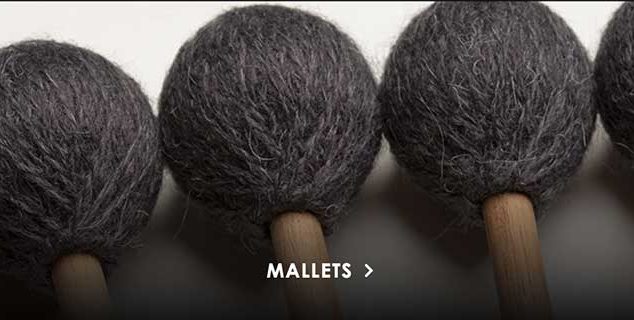READING MUSIC WITH WEBRHYTHMS:
LESSON THREE, PART D
Welcome to WebRhythms – an easy step-by-step method for learning to read rhythm, created by Vic Firth artist and educator Norm Weinberg. Starting at the very beginning, you’ll progress through 20 lessons, where each introduces a new topic. By the end of the series, you’ll be a master at reading rhythm!
In this WebRhythms lesson, you’ll learn to play 16th and 8th note combinations. The exercise you’ll be working on in this lesson will include audio play-along tracks in five different levels that you can use to track your progress!
8th / TWO 16th NOTE RHYTHM
This final rhythm (example A) is similar to the previous one. Called an eighth and two sixteenths, it results when the second eighth note is divided into two parts. For this figure, don’t count or play the “e”, but be sure to leave enough space for it. If you don’t, then this figure will sound just like the one above, and it shouldn’t. Examples A and C will show you how an eighth and two sixteenths relates to the other figures that we already know.

In order for you to get the feeling of this figure, I recommend that you begin by counting every single one of the sixteenth note syllables out loud. Remember not to play on the sixteenth’s syllable (“e”) if it follows an eighth note. Soon, as you feel more comfortable with the rhythms, begin leaving out the syllables that aren’t played. This way, you won’t have to say so many syllables when you are playing.
HAPPY READING!
PRACTICE THIS EXERCISE WITH THE PLAY-ALONG TRACKS!





